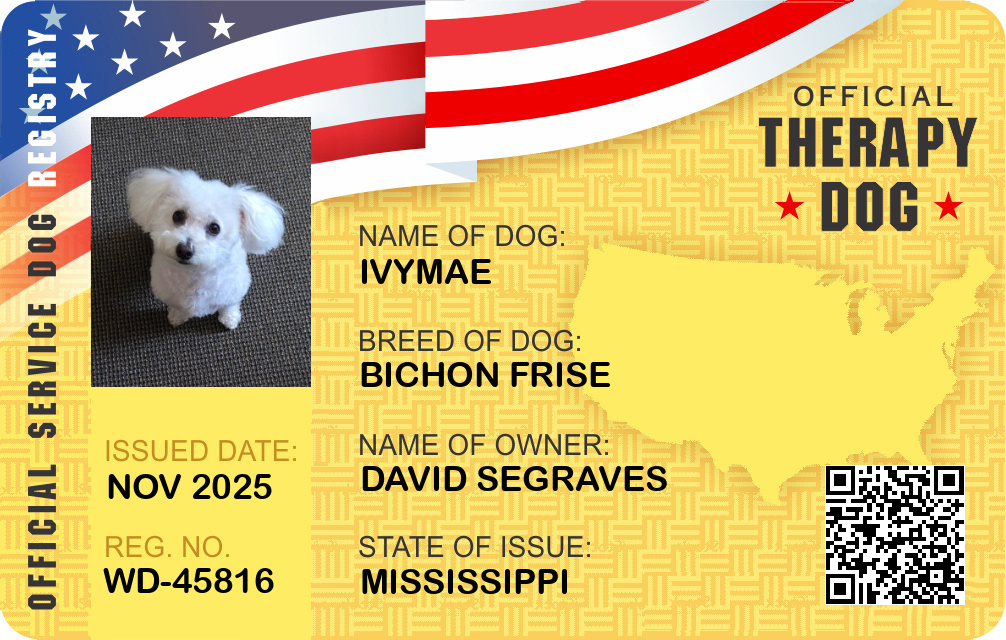Wisconsin Emotional Support Animal Laws

Overview of ESAs and Legal Definitions in Wisconsin
What is an Emotional Support Animal?
An Emotional Support Animal (ESA) is an animal, typically a dog or cat, that offers companionship and comfort to individuals with mental health conditions or emotional disorders. Unlike service animals, which are trained to perform specific tasks, ESAs are not required to undergo specialized training. The primary role of an ESA is to provide therapeutic benefits through companionship, helping alleviate symptoms of conditions such as anxiety, depression, and PTSD. In Wisconsin, as throughout the United States, ESAs have certain privileges under federal law, particularly in terms of housing, but they do not have the same broad access rights as service animals.
How ESAs Differ from Service Animals
Understanding the distinction between ESAs and service animals is crucial for compliance with the law. Service animals, as defined by the Americans with Disabilities Act (ADA), are typically dogs that are trained to perform tasks directly related to an individual’s disability. These tasks might include guiding a person with vision impairment or alerting someone with hearing loss to sounds. Service animals are granted wide-ranging access to public spaces, including restaurants, stores, and public transportation.
In contrast, ESAs lack specific training to perform tasks and are primarily provided for emotional support. Consequently, they do not have the same public access rights as service animals. In Wisconsin, as in other states, the distinction between the two impacts where an ESA can accompany its owner and under what circumstances.
Key Federal Laws Affecting ESAs (e.g., FHA, ACAA)
Two primary federal laws impact ESAs: the Fair Housing Act (FHA) and the Air Carrier Access Act (ACAA).
- Fair Housing Act (FHA): The FHA prohibits discrimination in housing-related activities based on a wide array of factors, including disability. Under the FHA, individuals requiring the assistance of ESAs are allowed accommodations. This means landlords must provide reasonable accommodations for persons with disabilities to keep their ESAs, even in housing with no-pet policies.
- Air Carrier Access Act (ACAA): Historically, the ACAA required airlines to accommodate passengers traveling with ESAs. However, as of December 2020, changes in the U.S. Department of Transportation's rules mean that airlines are no longer required to recognize ESAs, instead only service animals receive mandatory accommodation.
State-Specific ESA Laws in Wisconsin
Housing Rights and Responsibilities
In Wisconsin, federal housing laws under the FHA apply, offering protections to individuals seeking to have ESAs in their homes. Landlords are required to make reasonable accommodations for tenants with ESAs, unless doing so would impose an undue financial and administrative burden or fundamentally alter the nature of the housing provider’s operations. However, landlords in Wisconsin can request documentation, such as an ESA letter from a licensed mental health professional, to substantiate the need for the animal. Crucially, they cannot require the tenant to pay pet deposits or fees for an ESA.
Public Access and Accommodation
While service animals are accorded wide access in public spaces as mandated by the ADA, ESAs in Wisconsin do not enjoy similar rights. Public venues such as restaurants, retail stores, and hotels are not legally required to allow ESAs and typically reserve the right to deny access. This aligns with national guidance distinguishing ESAs from service animals. Hence, Wisconsinites with ESAs should be aware that securing permission from individual establishments is necessary for access in spaces beyond housing.
Transportation and Travel Rules
Regarding public transportation within Wisconsin, ESAs are generally not guaranteed access. Unlike service animals, which must be accommodated under the ADA, ESAs are subject to the individual policies of transport providers. While some local transit systems may allow ESAs under certain conditions, it is advisable for ESA owners to contact transportation providers in advance to ensure compliance with specific policies.
Employment and Workplace Considerations
Employment laws, primarily governed by the Equal Employment Opportunity Commission’s (EEOC) interpretation of the ADA, do not specifically address ESAs. Employers in Wisconsin are not legally obligated to allow ESAs into the workplace. However, employees can request accommodations for ESAs, which employers must evaluate on a case-by-case basis. The decision often hinges on whether the animal contributes to the employee's ability to perform key job functions and whether it does not disrupt the workplace or pose a health or safety risk.
Documentation, Requirements, and Processes in Wisconsin
ESA Letters and Who Can Issue Them
An ESA letter is a crucial document in demonstrating the need for an emotional support animal. In Wisconsin, this letter must be issued by a licensed mental health professional, such as a psychologist, psychiatrist, or licensed clinical social worker. The letter should detail the professional's k
Register Your Dog Instantly
nowledge of the individual's mental health condition and affirm that the ESA provides necessary emotional support that mitigates the effects of the diagnosis. Importantly, online services offering ESA letters without requiring a direct consultation with a mental health professional may not be deemed legitimate.Registration, Certifications, and Common Misconceptions
There is a common misconception that ESAs must be registered or certified. In Wisconsin, as elsewhere in the U.S., no official registry or certification process exists for ESAs. Websites and companies offering ESA certifications or IDs for purchase play no part in a legitimate ESA verification process and often exist to exploit misunderstandings about ESA laws. It is essential for ESA owners to understand that possession of such certifications does not confer any additional rights.
Landlord, Business, and Provider Verification Rules
Landlords in Wisconsin have the right to verify the need for an ESA by requesting an ESA letter from a tenant. However, they cannot ask for specific details about the tenant's condition or require additional proof beyond what is stated in the ESA letter. Businesses and service providers may request documentation when required by law but are generally not obligated to accommodate ESAs without clear evidence of such legal necessity.
Rights, Limitations, and Legal Risks
Rights ESA Owners Have in Wisconsin
ESA owners in Wisconsin benefit primarily from housing protections under the FHA, allowing for necessary accommodations to be made so they can keep their emotional support animals. While providing emotional support, these animals enable individuals to live independently and maintain housing that might otherwise be inaccessible due to no-pet policies.
Limits on ESA Protections and Common Restrictions
In public spaces and employment, ESA protections in Wisconsin are limited. Unlike service animals, ESAs do not have the inherent right to access establishments that are otherwise pet-restricted. Furthermore, changes in federal rules have affected ESA travel rights, particularly in air travel. Thus, when navigating public areas or traveling, ESA owners should anticipate possible restrictions and plan accordingly.
Penalties for Fraud or Misrepresentation
Misrepresenting an animal as an ESA can result in legal consequences. In Wisconsin, individuals caught falsifying information about an ESA, such as fabricating ESA letters or misrepresenting an ESA as a service animal, may face penalties or fines. Moreover, such actions undermine the credibility of legitimate ESAs and can complicate legislative efforts to protect individuals with genuine needs.
Practical Guidance for ESA Owners in Wisconsin
How to Qualify for an ESA Legitimately
To qualify for an ESA in Wisconsin, individuals must have a recognizable mental or emotional disability diagnosed by a licensed mental health professional. This professional must assess that the ESA provides therapeutic benefits that aid in alleviating at least one symptom of the disorder. Securing a legitimate ESA letter from the professional serves as evidence for housing and airline accommodations (where recognized).
How to Talk to Landlords, Airlines, and Employers
When discussing ESA needs with landlords:
- Present a valid ESA letter from a licensed professional.
- Discuss the impacts of the ESA on your well-being and housing needs.
- Be open to collaborating on reasonable accommodation solutions.
For employers, while not legally obliged to accommodate an ESA, discussing your needs can lead to voluntary cooperation:
- Provide documentation supporting your request, if available.
- Clarify how the ESA contributes to your job performance and well-being.
- Be prepared to negotiate alternative accommodations if the ESA cannot be accommodated within the workplace.
Tips for Avoiding Scams and Legal Problems
- Ignore offers that promise ESA “certification” or registration; these do not legally exist.
- Ensure your ESA letter is from a licensed mental health professional who has evaluated your condition personally.
- Remain informed about your rights and responsibilities under Wisconsin and federal laws to avoid falling prey to misinformation or fraudulent schemes.
Summary of ESA Laws in Wisconsin
- ESA Definition and Purpose: ESAs provide emotional support and are not trained to perform specific tasks.
- Housing Rights: ESA owners have the right to accommodation in housing under the FHA, without additional pet fees.
- Public Access and Travel: ESAs do not have guaranteed access to public spaces or air travel.
- Employment: No legal requirement for employers to accommodate ESAs, but discussions should be case-specific.
- Documentation: ESA letters must come from licensed mental health professionals. Certification or registration is unnecessary and often fraudulent.
- Legal Risks: Misrepresentation can lead to fines and undermines the credibility of legitimate ESA needs.











